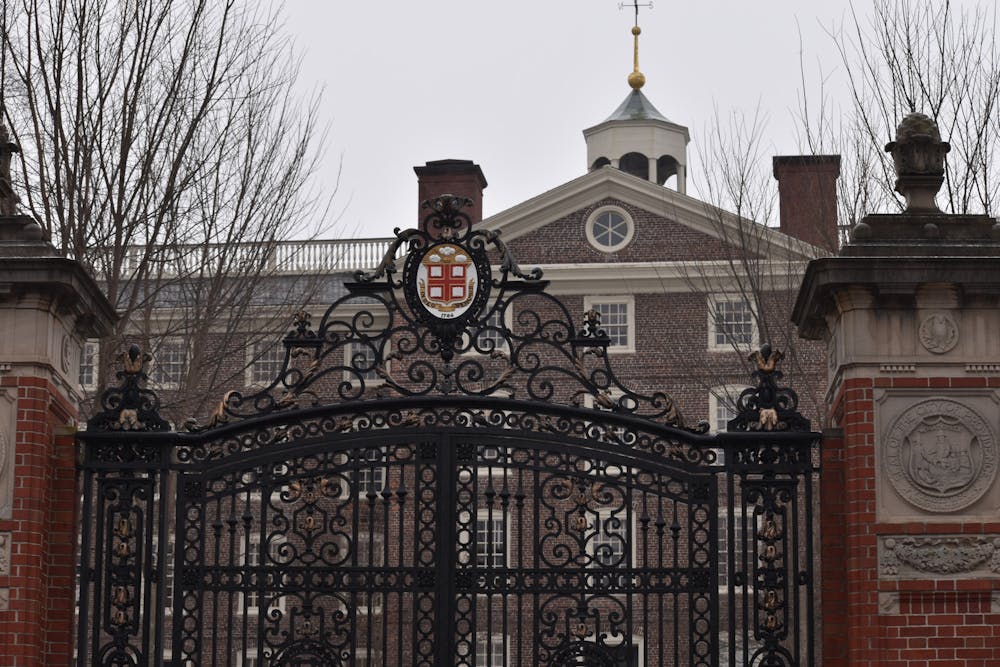The Graduate Labor Organization will begin renegotiating its collective bargaining agreement with the University this February in preparation for the previous contract’s expiration at the end of June, according to Ethan Bernstein, executive dean of administration and finance at the Graduate School. The agreement outlines terms including graduate student stipend rates, teaching responsibilities, health insurance and grievance procedures.
According to GLO President Sherena Razek GS, the University has offered a tentative date of Feb. 15 to begin contract negotiations, though the location for negotiations has not yet been determined.
‘Every article, every condition of our work … is on the table’
While GLO and the University meet annually to renegotiate stipend rates, this round of negotiations will cover all 15 articles of the contract for the first time since its inception in 2020.
“We're going to be reviewing the entire current contract and deciding if there's updates or changes, additions or subtractions that we want to make to it,” Bernstein said. “We’ll discuss a potential length for the new contract, all the while ensuring that we're supporting graduate students as best we can.”
“The stipend is just one piece of it,” Bernstein added. “Often other supports and benefits can be even more impactful to students, depending on the stage of their career.”
“Every article, every condition of our work, from healthcare to (teaching assistant) responsibilities to protections against discrimination and harassment is on the table,” Razek said. “So the stakes are a lot higher this time, and of course, our wages are also still on the table.”
Once negotiations start, the bargaining committees on each side will exchange proposals until an agreement is reached. Both GLO and the University expressed interest in collaborating to create an agreement that better serves the University’s graduate population.
University Spokesperson Brian Clark said that it is “impossible” to predict when the process will end. “Negotiations can be complex and multifaceted, and they take a lot of data gathering (and) research,” he added. “We can acknowledge now that it's going to take some time.”
Clark added that the administration is focused on “working together collegially with the grad student representatives and doing our best to reach that contract.”
“We are fully hoping that our employer will come to the table and bargain in good faith with us and that we'll be able to hold strong on our priorities and win a contract that grads deserve,” Razek said.
“We have many of the same goals and priorities,” Bernstein said. “We’re looking forward to furthering that sense of collaboration and commitment to graduate education.”
From health care to language ambiguity: discussing the contract
Though neither party could comment on the specific areas of the contract they plan to renegotiate, Razek said job protections will continue to be a primary concern for GLO this fall. This fall, the organization protested when three graduate students reported being forced out of their programs, The Herald previously reported.
“In the fall, we had a campaign around three grads, all grads of color, who had been unfairly and unjustly forced out of their programs,” Razek said. “We need better job security. We need to make sure grads actually have the five-year guarantee funding package that we’re promised when we come here to work for Brown.”
Two of those grads, Jeremiah Zablon GS and Karina Santamaria GS, have since been reinstated.
Federal law prohibits the University from disclosing students’ academic or financial circumstances, preventing administrators from speaking on the matter, Clark wrote in previous communications with The Herald.
Razek additionally cited health care and cost of living as two areas that GLO feels the current contract does not adequately address.
“There are ways in which our health care isn't serving people,” she said. “The cost of living and how expensive it is now to rent in Providence has just gotten to a breaking point. Inflation is a huge issue across the country, but it's definitely also a factor we want to consider.”
The University did not directly respond to Razek’s claims about health care and economic conditions in Providence.
The University hopes to clarify ambiguous language in the contract to make sure the outlined processes flow more smoothly, Bernstein said.
“Sometimes over the past three years, there's been a question about what applies and what doesn't, what's the right process to follow, who should be informed and at what step — everything from grievance processes to the recognition and bargaining unit clause,” Bernstein said.
Bernstein also noted that the University wants to renegotiate some of the “administratively challenging” requests the contract makes of the University, including dues deductions and collecting authorization cards.
“I really do not understand how collecting information about the workers they employ would be hard to manage for a university which possesses such immense resources,” Razek wrote in a message to The Herald.
Potential for open bargaining, next steps
According to Razek, the University and GLO representatives have been discussing whether the negotiation will function as an open bargaining process, wherein “any worker who is impacted by the contract has a right to attend and observe negotiations.” GLO and the University have disputed open bargaining in past negotiations, The Herald previously reported.
Open bargaining promotes “principles of transparency, democracy and collective power,” but the University had so far rejected GLO’s request to do so, Razek said. “Grads deserve to be in the room when decisions are made about our livelihoods, our safety (and) our well-being.”
“One of the priorities that often precedes the start of a collective bargaining process is discussion about ground rules and principles that can help to encourage a collaborative and collegial process,” Clark wrote in an email to The Herald. “Brown remains in conversation with GLO representatives on many of these considerations with the goal of a positive rapport and productive sessions toward an agreement that works well for both the University and the union.”
Bernstein and Clark also anticipated that situations unique to a student union might arise amid negotiations, as union members change from semester to semester and are in the University both as workers, which is a status covered by the union, and as students, which is not.
According to Razek, GLO has prepared thoroughly for these negotiations by running training sessions, surveying hundreds of graduate students and electing its bargaining committee, which will release the union’s final bargaining platform at its general body meeting next week.
“Our bargaining committee has been poring over the current contract, finding the ways in which organizers have experienced grievances, grads are struggling and our contract hasn't been serving us,” she said. “We've tried to find those weak points and to really know what we can improve.”
Bernstein said that he hopes the relationship the University has built with GLO over years of negotiations will ease the bargaining process.
“Over the past three years, we’ve built a strong working and collaborative relationship with GLO leadership,” he explained. “And throughout it all, I think we’ve developed a strong, respectful, honest way of communicating and coming to common solutions.”

Katie Jain is a University News editor from New Jersey overseeing the graduate student life beat. She is a senior concentrating in International and Public Affairs and History.





